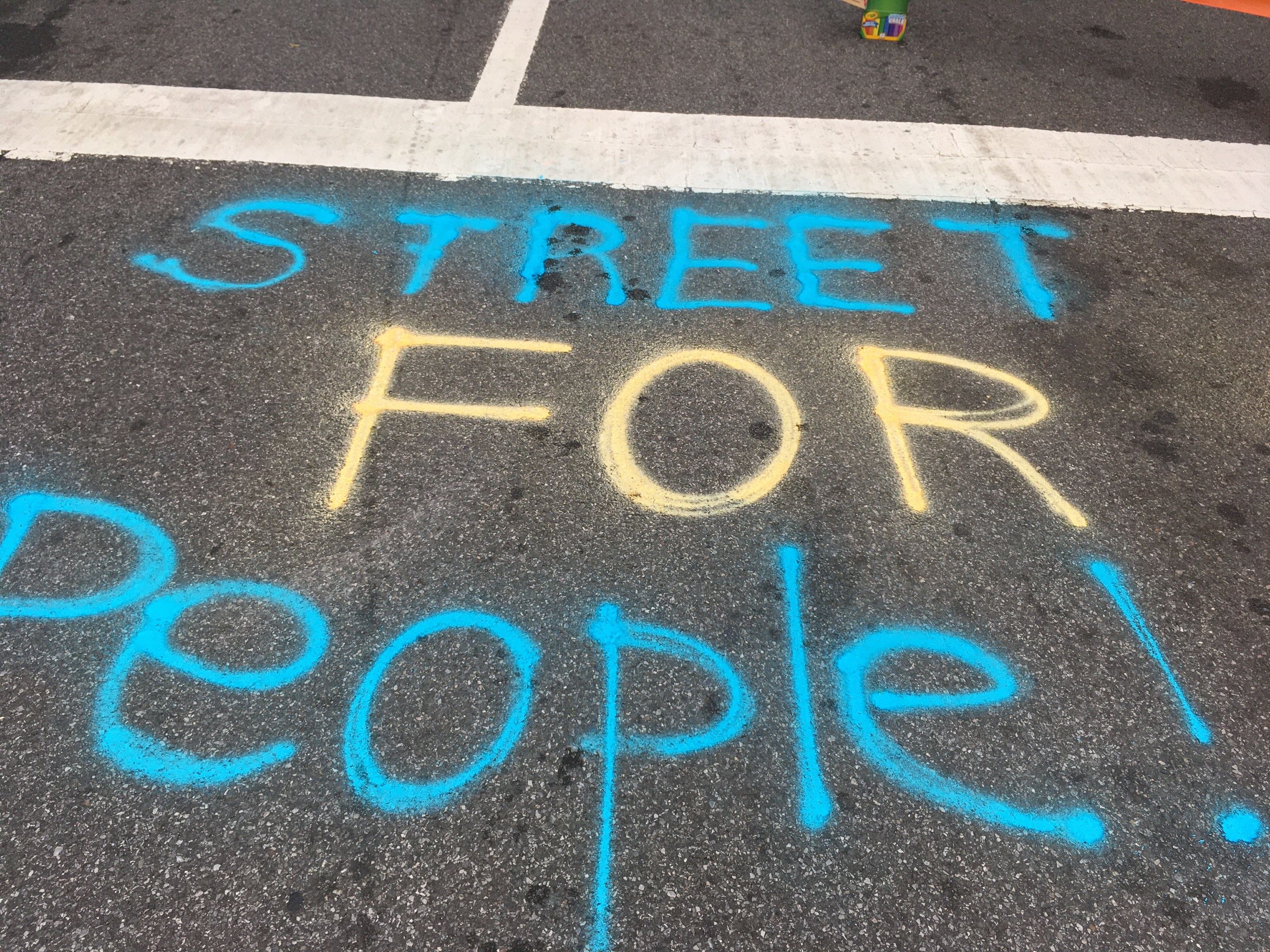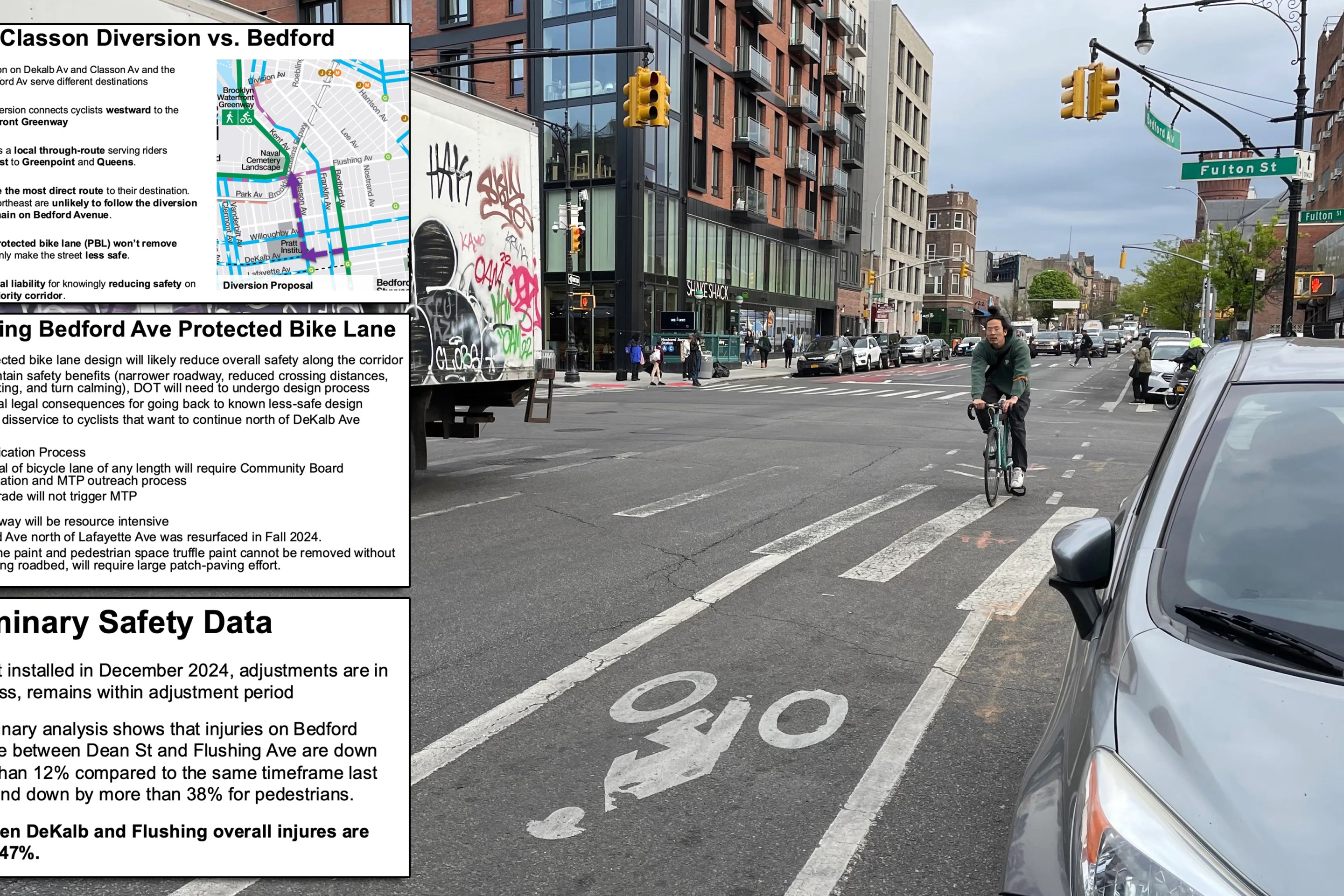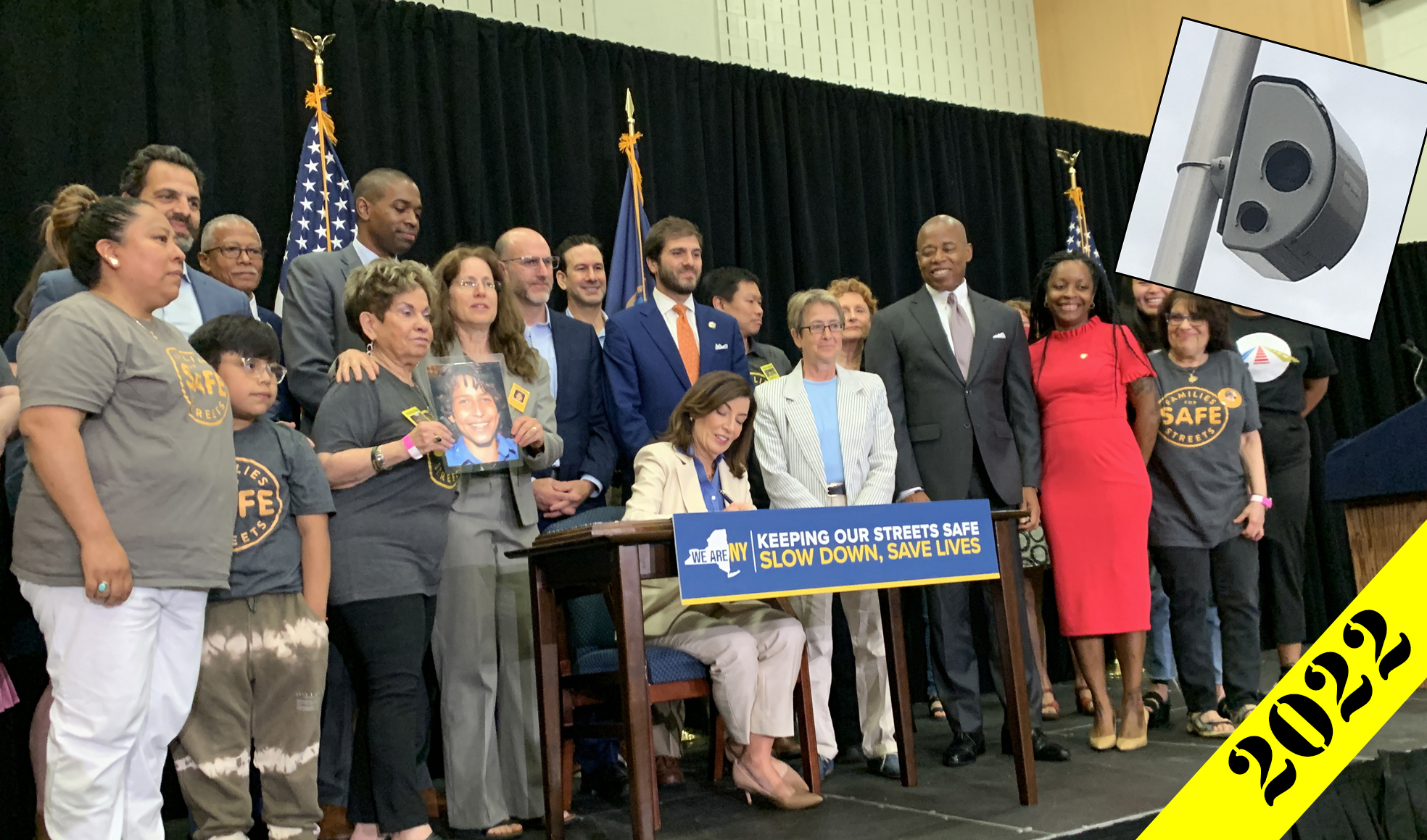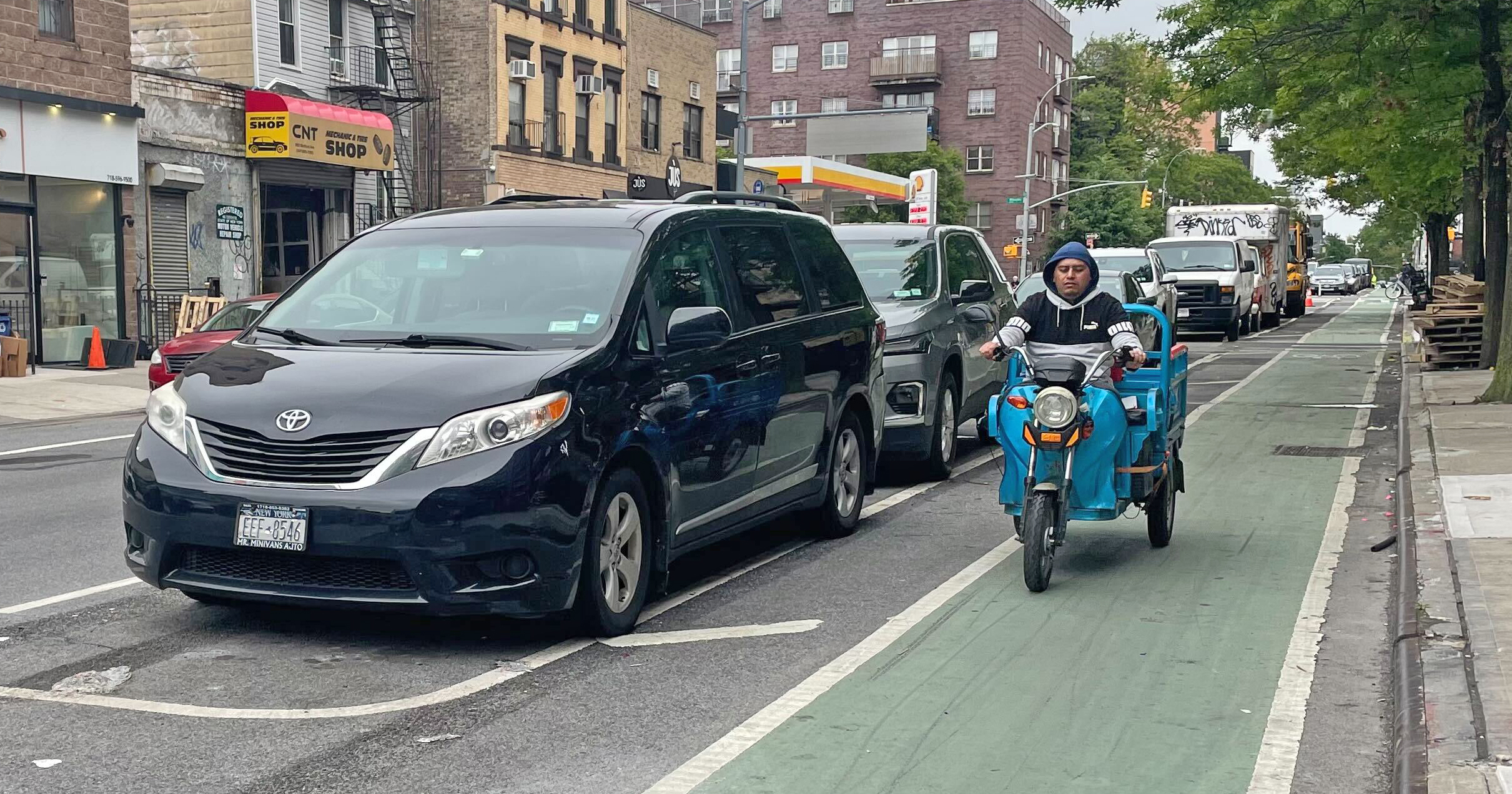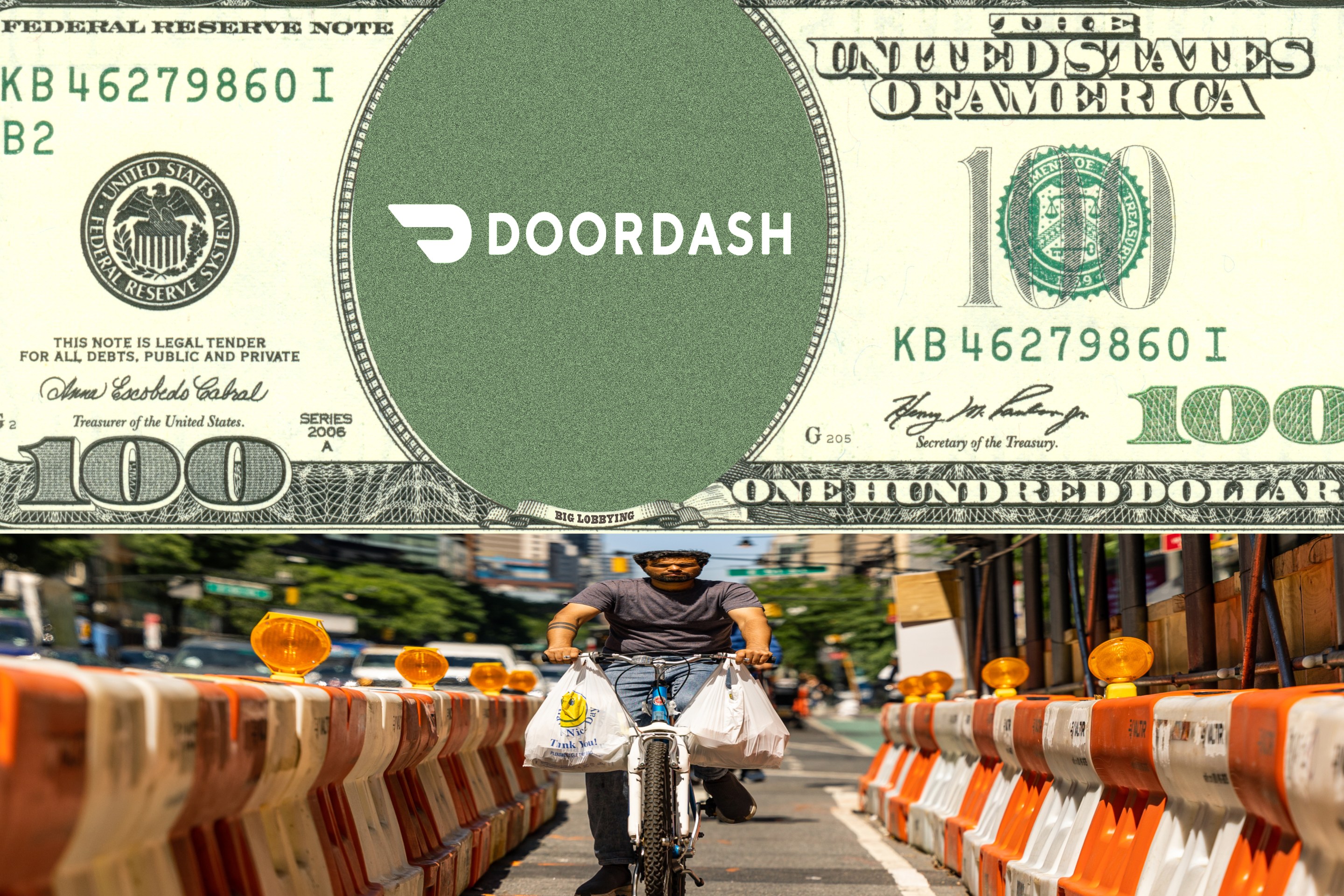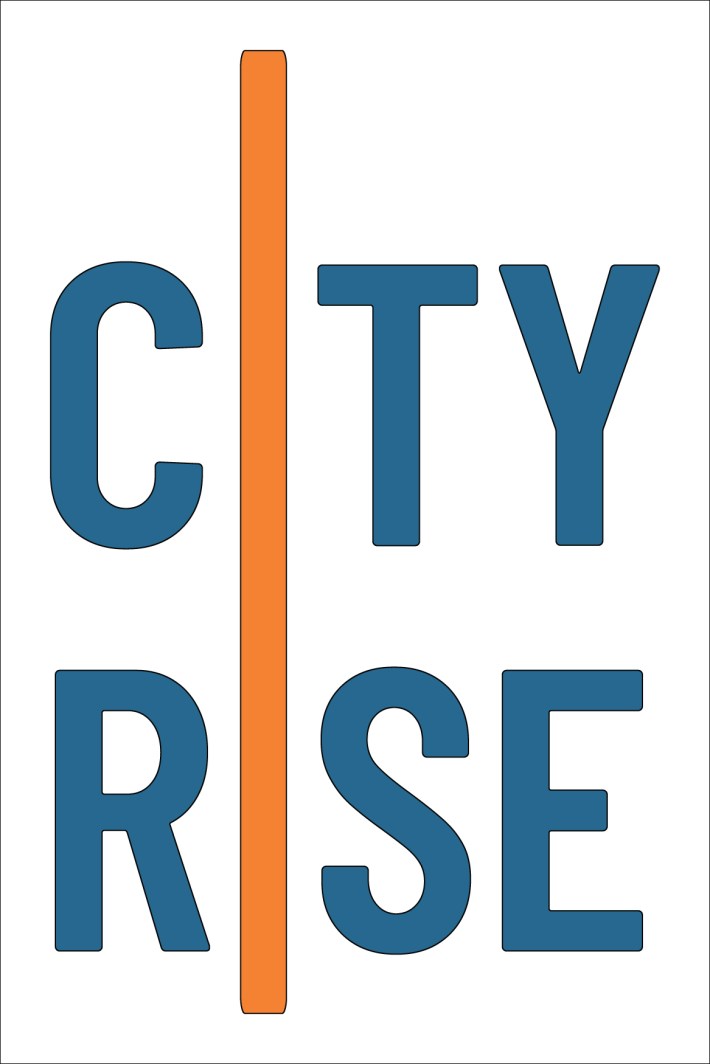
Safe-street activists are launching a pressure group to ensure that the city does not fall wholesale into a post-COVID “camageddon” of clogged roads, worsening pollution, skyrocketing traffic violence and failing businesses.
The group, CityRise, seeks to push Mayor de Blasio to enact the recovery plan recommended in June by his own blue-ribbon Surface Transportation Advisory Council, by building out bike networks, open streets, and high-occupancy vehicle and bus lanes, among other measures.
Further, in a rebuke of the city’s slow-moving Department of Transportation, CityRise wants to use tactical urbanism — quick-build methods of transforming the streetscape, using temporary materials — to effect the changes, relying on not-for-profit groups, business-improvement districts, and loose neighborhood networks to put the desired networks in place. In this way, it seeks to replicate the urgency of certain pandemic emergency programs, especially the open restaurant initiative, which allowed private entities, in this case restaurants, to operate in public space through a streamlined city application.
Thousands of restaurants took advantage of the program in a matter of weeks. The quick turnaround contrasted sharply with the often glacial pace of some regular DOT functions, such as the siting of bike corrals (which can take more than a year) and even the installation of ADA-compliant curb cuts (ditto).
“The Department of Transportation needs to loosen the bureaucratic grip that has stifled communities solving problems on their streets,” says the website of CityRise, which is a project of Open Plans (full disclosure: Streetsblog has the same parent company). “The city must work with community partners and create frameworks for local empowerment, as they have with the Open Streets Restaurants initiative. Local empowerment will allow New Yorkers to take ownership of their streets and neighborhoods and to harness the well of energy and creativity within our talented residents.”
“I'm excited to see the conversation about creative use of the streets flourishing in these uncertain times,” said Rachel Weinberger, a senior fellow at the Regional Plan Association — whose president, Tom Wright, was among the members of the Surface Transportation Advisory Council who complained about the mayor’s inaction some weeks ago.
“The council included voices from many different perspectives and came to consensus on a great set of recommendations,” Weinberger added. "So far, the mayor has not publicly prioritized those actions. I'm glad to see citizens and organizations from across the city continuing to shed light on these issues and coming together to promote that work.”
So far, CityRise, which “soft launched” this week, has attracted support from notable not-for-profits, including Riders Alliance, 34th Avenue Open Street Alliance, Friends of Cooper Park, PlacemakingX, Brooklyn Greenway Initiative, and RETI Center. It has held preliminary discussions with activists on the siting of local bike networks that might enhance the Regional Plan Association's scheme for a five-borough “arterial” bike network.
CityRise also demonstrated a “bike boulevard concept” during an event last week that opened up several blocks of West End Avenue for pedestrian activities. The concept envisions 5 mph “shared-space roadways” with two or three chicanes or “bulb-outs” on every block to force drivers to go slowly.
Livable-streets activist Lisa Orman, the director of Streetopia UWS and a moving force in CityRise, said that the campaign will show the DOT and elected officials that “there is a mandate for change” in this city.
“As ‘Gridlock Sam’ Schwartz, Regional Plan Association, the Rudin Center and others have predicted, if the city stays on its current course, with no actionable mobility plan, gridlock will paralyze the city's recovery,” Orman said. “Instead, CityRise will engage residents, businesses, and civic organizations to fight for open streets to feed community connection, space for businesses and schools; quick-build bike lanes such as bike boulevards that will facilitate the bike boom and get kids to school and adults to work; HOV plans to limit vehicle access in the city; and dedicated, smart bus infrastructure to keep all New Yorkers moving. Together, New Yorkers will rise up and fight for the future city we want, need, and deserve.”
That thought was seconded by Betsy Plum, executive director of Riders Alliance, one of the first groups to sign on to CityRise.
The city “has a once in a lifetime opportunity to become a better and more equitable place to live,” she said. “A big piece ... is reforming how our streets are used, where precedent and priority are given. CityRise represents a key effort to push the bold conversations we need in order to rethink how New Yorkers move as we emerge together from this crisis. At Riders Alliance, we know that that must include prioritizing bus riders by creating new bus lanes and busways. We're glad to see that ensuring buses move better and improve speed and reliability as we continue to reopen is a major piece of the CityRise plan.”
The DOT said via a spokeswoman that it “will review the initiative in relation to the substantial enhancements it's made in these areas and continues to implement.”
For information on CityRise, visit the group's website or follow it on Twitter @cityrisenyc.
